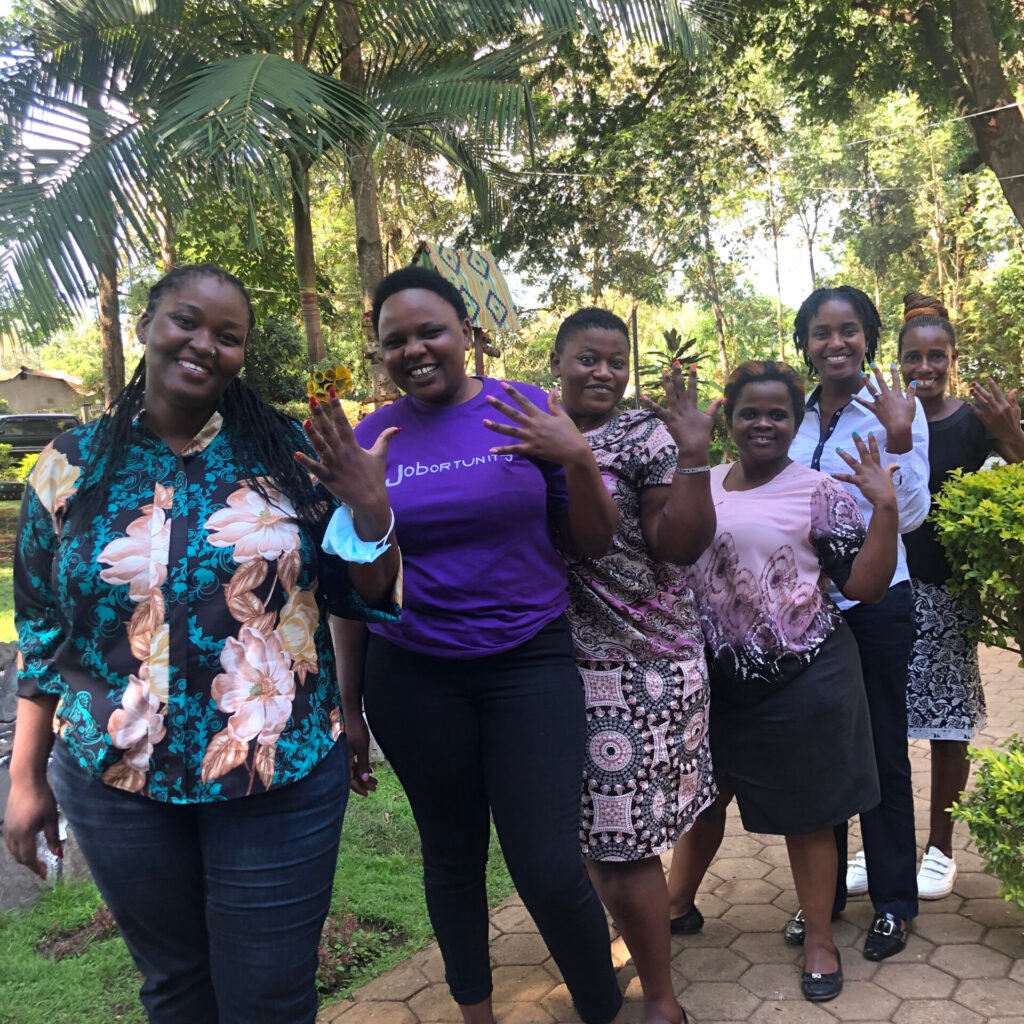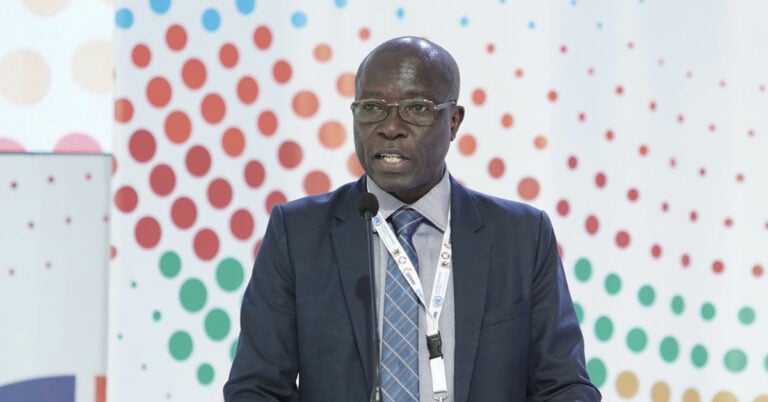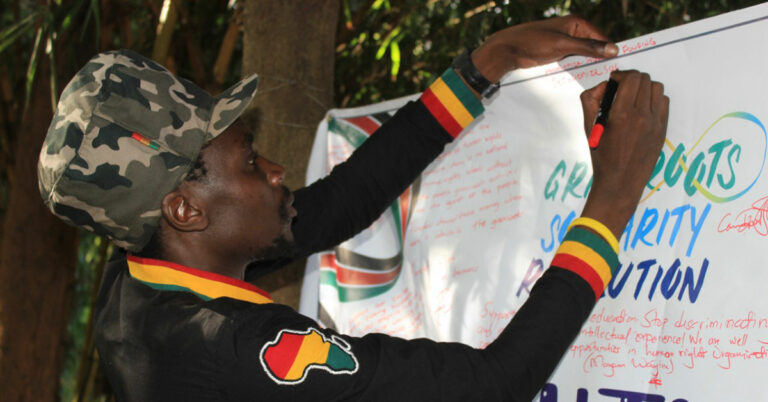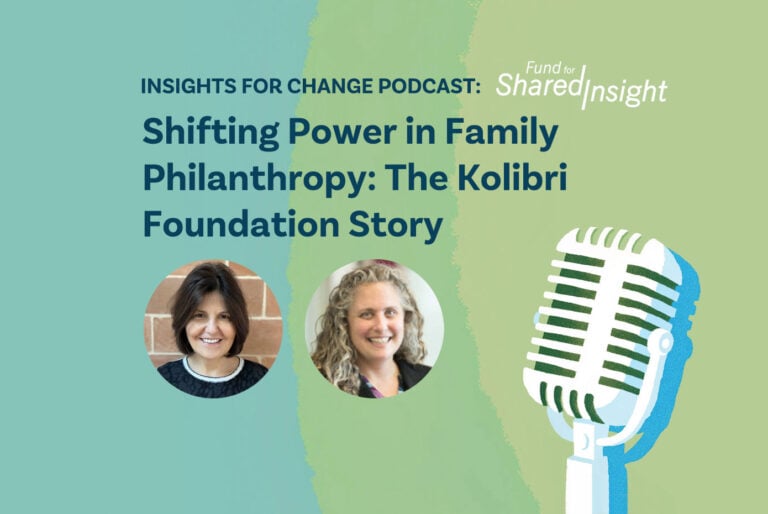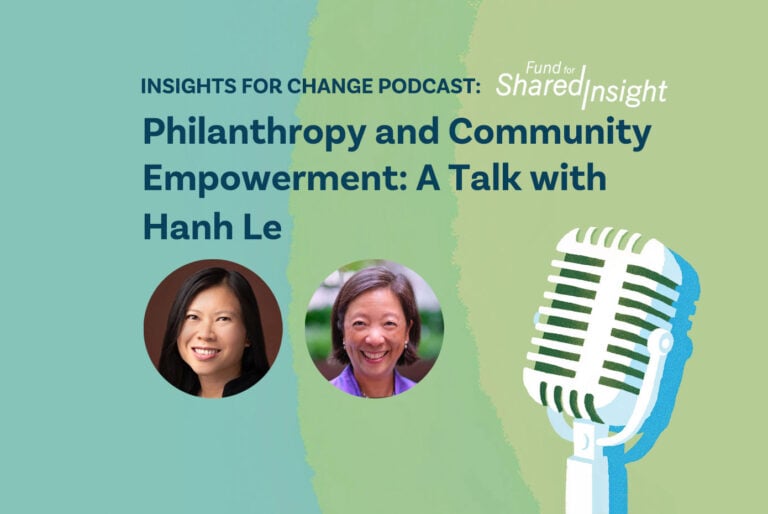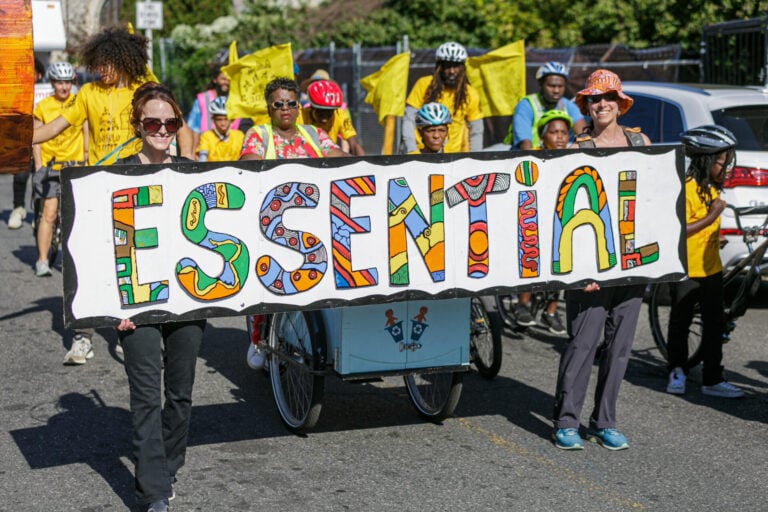Dr. Lwidiko Mhamilawa launched the two biggest science centers in Tanzania to inspire young people to enter STEM fields. Neema Magimba and colleagues at Sheria Kiganjani, which in Swahili means “the law in your palm,” created a digital platform that provide legal services to more than 80,000 Tanzanians. Victoria Marwa Heilman, an architect, is developing a project in the Kisarawe District of Tanzania where women learn brickmaking and take on construction apprenticeships to build homes for the elderly.
These Tanzanian leaders are connected as fellows supported by Segal Family Foundation, a funder based in New Jersey that made grants to 351 organizations in sub-Saharan Africa last year. While the foundation is modest in size (with assets of about $120 million), in a typical year the number of grants it makes in sub-Saharan Africa is second only to the Gates Foundation.
Segal Family Foundation is also remarkable in the share of its support that goes to locally-led development efforts. From 2016 to 2019, 23 percent of grants from U.S. foundations for global efforts went directly to organizations with headquarters in the countries where the work would take place. By contrast, 90 percent of Segal Family Foundation’s international giving last year went to African-led organizations. Notable, too: all of the foundation’s program officers are based in the countries where they are making grants.
Andy Bryant, Segal Family Foundation’s executive director, and Sharonrose Msaki, a senior program officer at the foundation based in Dar es Salaam, Tanzania, spoke with Insights for Change about the foundation’s focus on local voices and local leadership, and how its grantmaking has become more responsive as a result.
“Communities that we serve are at the forefront,” says Msaki. “They’re leading, their voices matter, and their voices are really loud. We have to listen. Everybody else has to listen if they are actually leading in that journey to change.”
Communities that we serve are at the forefront. They're leading, their voices matter, and their voices are really loud. We have to listen.
Sharonrose Msaki, Segal Family Foundation
Trusting local leadership
In the early stages of exploring philanthropic opportunities, Barry Segal, the founder of a building materials company, attended the 2006 Clinton Global Initiative, an annual conference bringing together governments, NGOs, and private funders to address global issues. Soon after, Segal visited Rwanda, where he was struck by the people he met who were pursuing changes in their communities. He concluded that his most effective role could be supporting grassroots organizations in Rwanda and other countries in sub-Saharan Africa run by talented leaders who could work together locally.
The mission to work to transform development in sub-Saharan Africa from the ground up felt like a big mandate, says Bryant, who had worked in international development for many years when he took the job as Segal Family Foundation’s first executive director. But he was impressed with the faith Segal had in local leadership to lead those changes.
“I realized I could exercise that kind of faith toward others,” Bryant says. “And that’s when we started hiring up local staff.”
Program officers based in the countries where the foundation works — the foundation now has six of them — interact with grantees and community members in their primary language when possible, and without the formalities that they say might get in the way of honest conversations.
“We do away with PowerPoint presentations,” Msaki says. “Often we have a chat over coffee with partners to catch up, and we do it very often. Frequency is very important in the relationship building.”
Msaki underlines the importance of relying on “proximate leadership” — people who are leading change in communities they are part of or close to — to understand the context and background of a community. And she emphasizes the need to be intentional about creating the right environment for listening.
“I have to make sure that those people I’m listening to are in a space where they are comfortable to be open to express their concerns without fearing any consequences,” she says. “To be bold, but also to express that boldness. To speak with authority, and to have confidence in their ability to lead change, and hold that position that they have as leaders in the communities.”
Trusted listening spaces and relationships are particularly important in times of crisis, Msaki and Bryant say. In the COVID-19 pandemic, continual listening on the ground led the foundation to give additional funds for COVID response as organizations pivoted to address local needs. Following the recent withdrawal of U.S. foreign aid, which had been a primary source of humanitarian and development funding in sub-Saharan Africa, program officers have been speaking with grant partners about what they need, making adjustments in grant disbursement schedules, and, at a recent Segal Connect event, convening local partners to share their experiences as well as meet other funders who can step in with unrestricted, trust-based funding.
Bringing former grantees with lived experience onto a board is the easiest and most obvious way to transform how a foundation learns and gets smarter.
Andy Bryant, Segal Family Foundation
Local influence extends to the foundation’s board as well. While members of the Segal family primarily comprise the foundation’s board of trustees, Bryant says that they base many of their decisions on input from the foundation’s advisory board. Along with three family members, six members of the advisory board are former grantees. Bryant says the voices of these former grantees have been influential, for example in championing the foundation’s continued support of capacity-building and community-building efforts, based on the value those activities brought to the growth of their own organizations.
”Bringing former grantees with lived experience onto a board is the easiest and most obvious way to transform how a foundation learns and gets smarter,” Bryant says.
Learning from mistakes
A foundation can also learn from listening following mistakes, Bryant says. In early 2023, for budgetary and strategic reasons, Segal Family Foundation’s leadership decided to put a first-ever limit on the number of years an organization could continue as a grant partner. Bryant then sent a blanket email to 385 existing grantees — including organizations that had been grantees for six months and others that had been receiving support for 15 years — to alert them to a new eight-year limit.
A decision that was made in the foundation’s New Jersey headquarters landed with a thud everywhere else, Bryant says. From the responses they heard, they quickly understood they should have consulted in-country program officers and local leaders about the new policy in advance, and they should have reached out individually to their grantees.
To mend relationships, Bryant met with grantees around sub-Saharan Africa. As a result of the many conversations he had, the foundation adjusted its policy away from a “one-size-fits-all exit strategy,” he says. In Burundi, for example, where there is little investment by private philanthropy, there’s now flexibility beyond the eight-year limit. The foundation also started a “Luminary Circle” to promote and amplify the work of its former grantee partners to draw the attention of other potential donors. The initiative, Bryant says, has driven millions of dollars to organizations Segal Family Foundation no longer supports financially.
Advocating for changes in philanthropy
As the foundation continues to improve its own practices, it seeks to bring other funders along in doing more to center local leadership in grantmaking and decision making. One way to start on that path, Msaki says, is to make unrestricted grants.
“It’s very important to respect the autonomy that our partners have in leading their own journeys and approach these relationships as more collaborative efforts,” she says.
Language is important, too. Msaki notes that philanthropy has typically taken a deficit-based approach to development, which has led to the use of problematic terms, like “third-world countries.” Instead, she says, it is important that “how we define the communities that we work with signifies respect and dignity.”
In global development, she says: “You want the community to be able to define themselves.”
The Segal Family Foundation team collects resources to share with other funders looking to build locally-led, trust-based practices globally.
